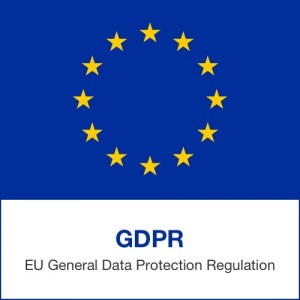In today’s digital age data has become increasingly important and how it is collected, used and protected has become a major concern for individuals and governments across the developed world.
 From medical and financial records to our shopping habits and lifestyle preferences, our personal data is stored, shared and analysed.
From medical and financial records to our shopping habits and lifestyle preferences, our personal data is stored, shared and analysed.
Across Europe data protection and privacy regulations has varied from country to country and in 2012 the European Commissioner set about creating one set of standards, GDPR (General Data Protection Regulation) with the intention of protecting the interests of individuals and regulating how their data could be used across the EU, taking into account the effects of globalisation and technology developments.
GDPR was adopted in April 2016 and is due to take effect in the UK from 25th May 2018. However, it has been the subject of much controversy. Under its current guise it is likely to severely limit normal business practice and therefore may be challenged and modified. In addition, Britain’s decision to exit the EU means we may need to introduce our own version of GDPR to enable free trade with EU members which may delay things further. As it stands there is speculation but no clear indication of what will now happen in 2018.
Many in the business community are opposed to GDPR as the new regulations requires that all organisations receive explicit consent to collect and process personal data and carry out marketing communications, even with existing customers. The trading and economic impact of this would be severe.
The regulation applies to individuals, not corporations. However, further controversy exists as data that identifies an individual with ‘personal data’ within a corporation may trigger the new regulation.
Insight Data has monitored the developments closely since 2012 and has worked continuously with the UK DMA (Direct Marketing Association) to assess the possible implications for UK business and the economy, challenges to the regulations and the UK position as it moves to leave the EU. In the meantime, organisations can carry on as normal by following the existing UK rules.







